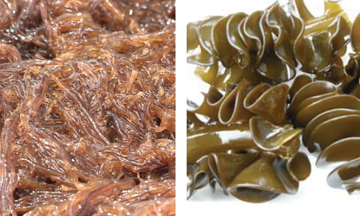Nutritional deficiencies can significantly impact a child's growth, development, and overall health. Many children may appear active and healthy but still lack vital nutrients. Here are some warning signs for parents to recognize if their child isn't getting enough.
Frequent illnesses: While it's normal for children to have 6-8 fevers a year, frequent colds, slow recovery, or recurring infections can indicate a weakened immune system. This can be caused by deficiencies in vitamin C, D, zinc, or protein. Parents should pay attention to any signs of illness, especially gastrointestinal infections.
Slow development or dental problems: If a child isn't gaining weight or height as expected, or experiences delayed or chipped tooth development, they may be lacking protein, calcium, or vitamin D. A one-year-old typically weighs around 10 kg, a six-year-old around 20 kg, and a 10-year-old around 30 kg. Expected heights are 75 cm at one year, 100 cm at 4 years, and 137 cm at 10 years.
Mood changes and poor concentration: Irritability, anxiety, or poor academic performance can be linked to deficiencies in omega-3s, iron, or B vitamins. These nutrients play a vital role in a child's cognitive and emotional development.
Low energy or fatigue after play: If a child is frequently tired after playtime, needs frequent naps, or has difficulty concentrating, it could be a sign of iron, vitamin B12, or protein deficiency. These are essential for maintaining energy levels and supporting brain function.
Hair loss or brittle hair: Thinning or brittle hair, or frequent hair loss, can indicate a lack of protein, biotin (vitamin B7), or zinc. In severe cases, children may experience patchy hair loss. Hair health can often reflect nutritional status, particularly protein intake.
Improving children's health: To boost a child's health, parents should focus on balanced meals with diverse foods like vegetables, whole grains, lentils, and nuts. Eggs are a good source of protein and children can eat one daily. Sugary drinks, artificially sweetened beverages, and processed foods should be avoided as they contribute to excess calorie intake, leading to weight gain and an increased risk of type 2 diabetes. Children should drink water, milk, or natural fruit juice for optimal nutrition.
Parents should encourage outdoor play for natural vitamin D. Supplements should only be considered after consulting a pediatrician.
Le Nguyen (According to Hindustan Times)
| Readers can submit questions about children's health here for doctors to answer. |












